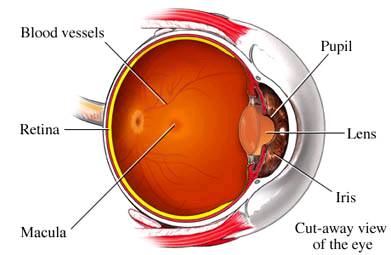
Commentary by Tammy Wittmann, OD
Q: My mother and aunt both have macular degeneration. Am I likely to get it also?
Jan S., Noblesville
A: Age-related macular degeneration is one of the leading causes of vision loss and blindness in the adult population. It has two forms: Dry, or atrophic (90 percent), and wet, or exudative (10 percent). Heredity is one risk factor, but others include age, gender, ethnicity, UV exposure, smoking, diet and nutrition and heart disease. Obviously, some of these factors we can control while some we cannot. I do recommend patients eat a diet that includes lots of fresh fruits and vegetables, especially dark-green leafy ones like spinach, as well as take a daily vitamin/mineral supplement that includes lutein. It is also advisable to not smoke and to avoid secondhand smoke. One very important thing to note: I have several patients with mild-to-moderate dry macular degeneration who have no symptoms. They are correctable to 20/20 vision and would never know they have the disease if not for a comprehensive eye examination. Once signs are detected in the eye, we are now able to run DNA testing to establish how much and what type of genetic link a patient may have to the disease. Regular eye health exams are important since early detection for AMD allows for more effective treatment options and a better prognosis.
Tammy Wittmann, OD, is the owner of Wittmann 20/20 Family Eye Center. For more information, e-mail her at [email protected].


